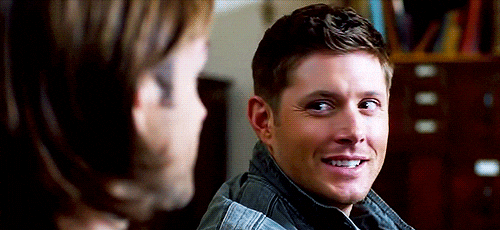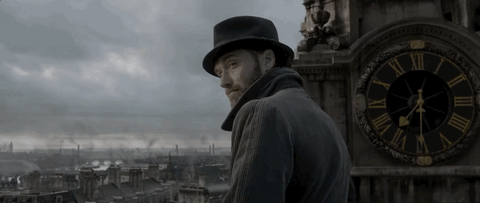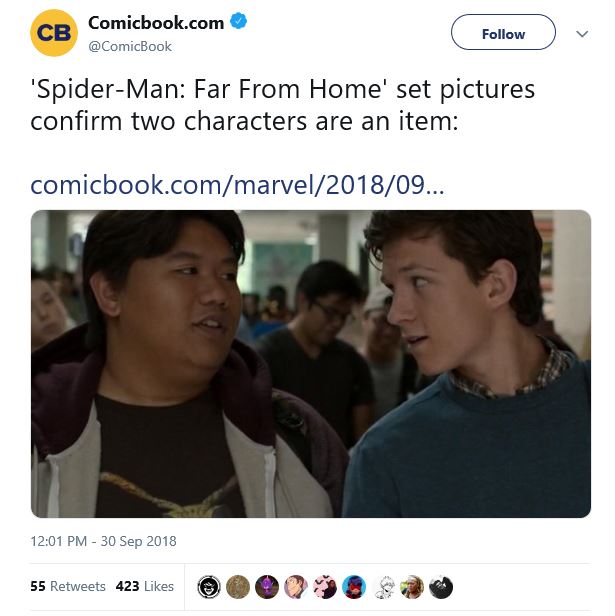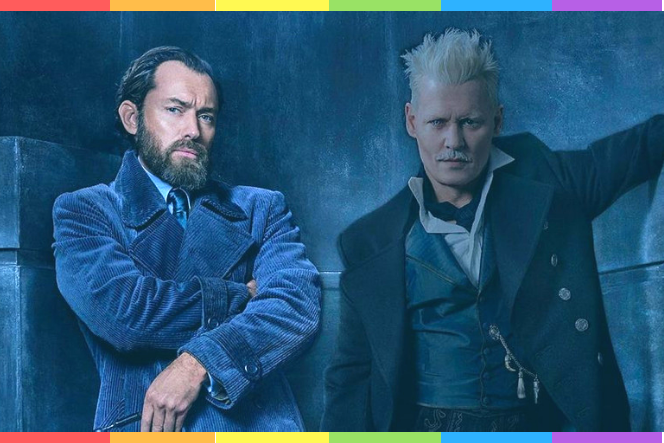Queerbaiting is a dangerous and scary trend in current film and television.
It occurs when queer subtext and sexual tension between two characters is exploited to attract LGBTQ+ viewers, while allowing the creators to claim their film or show is “progressive” and “inclusive”.
As an independent gay male who does not need film producers telling him to watch something because a character has the possibility of one day entering a same sex relationship, I have a few things I’d like to say:
Queerbaiting is a manipulative trick that film and television producers use to target underrepresented LGBTQ+ audiences to increase their overall viewership. By queerbaiting they can promote their cast of characters as inclusive and diverse without having to provide any real substance.

It’s not progressive media if it doesn’t provide substance. (Source)
The most prominent form of queerbaiting is when two same-sex characters tease, flirt and demonstrate attraction to each other without the promise of a relationship. Instead, the hinted relationship is ignored and in some case is made the punch-line of jokes. Supergirl’s Kara Danvers and Lena Luthor, Sherlock’s Sherlock Holmes and John Watson and, Supernatural’s Dean Winchester and Castiel are just a few examples of this trend.
Supernatural is not only known for its long run and brilliant writing but its cult fanbase that has created many “ships”, which are romantic pairings of two characters real or otherwise. Destiel, the “ship” of characters Castiel and Dean, has been the subject of thousands of fan fictions across the internet despite their suggested relationship never being acknowledged on the show.

Source: Giphy
Whether the showrunners purposely hinted a Destiel to spark interest from the community or only played it up after the fandom pushed to see flirtatious and suggestive scenes is a topic for debate. What is unnerving is that LGBTQ+ fans of the show are invested in a relationship that will, most likely, never end with a happy queer ending.
Imagine being a young LGBTQ+ person seeking validation for your identity and never getting to feel the excitement of your feelings and sexuality being represented on screen. You wonder why you are different. You think about why these two people who clearly have feelings for each other never end up together. You become infatuated with the idea, that for you, love is not attainable because you are different.
Television and film companies manipulating our identities not only influences the way other individuals see us, but the way we see ourselves. For the LGBTQ+ community, this is queer representation has manifested itself into a culture which damages our very identities. Using queer sexualities as a gimmick is exploitation of the LGBTQ+ community’s desire for representation.
Recently, we have seen Dumbledore’s on-screen confirmation as a gay character in the upcoming Harry Potter prequel, Fantastic Beasts: The Crimes of Grindleward leave him the latest in the longstanding, problematic “bury your gays” trope. This missed opportunity to depict his everyday queer identity could have given children an example of a strong, non-stereotypical, badass queer character that they could relate to on a personal level. With a beard like his, I would have embraced my own homosexuality much sooner – who doesn’t admire a bearded badass wizard who sacrifices himself for the good of the wizarding world?

Source: Giphy
There are serious repercussions to queerbaiting, and I am not okay with producers and writers exploiting my identity to attract the LGBTQ+ to their new show or film by depicting an inaccurate representation of an identity that I have found so difficult to fully embrace.
Another example is when a recent tweet about the upcoming Marvel film Spider-Man: Far From Home led fans to speculate about a potential queer relationship, only for the relationship in question to be heterosexual couple Betty Brant and Ned Leeds. T his tweet is a textbook example of queerbaiting. Showing a picture of Peter Parker and his best mate immediately leads LGBTQ+ Marvel fans to read the article only for them to be disappointed and confused as to why they were so clearly baited.

It makes me feel sick when I find out that a character that I resonated with is there only to extend viewership and to tick a diversity box in a checklist of tropes.
The LGBTQ+ community want producers and writers to be able to include more queer characters without needing justification. However, when this representation of these queer characters is inaccurate the attempt at inclusiveness fails. Bad writing that is well intentioned still fetishizes LGBTQ+ individuals and perpetuates deeply ingrained stereotypes. The well-known stereotypes like a gay male who is an accessory for a cishet woman and used as one of her pawns teach people watching that this is an acceptable way to treat queer people, and this is just wrong.
We want our identities represented in media, but we want them represented with accuracy, not just the “yassss, werk kween” sidekick to a female character. Challenging these stereotypes will allow queer characters and same sex relationship to be depicted fairly. Our identities may make coin for you, but they are who we are, and to exploit them for profit is disgusting.

